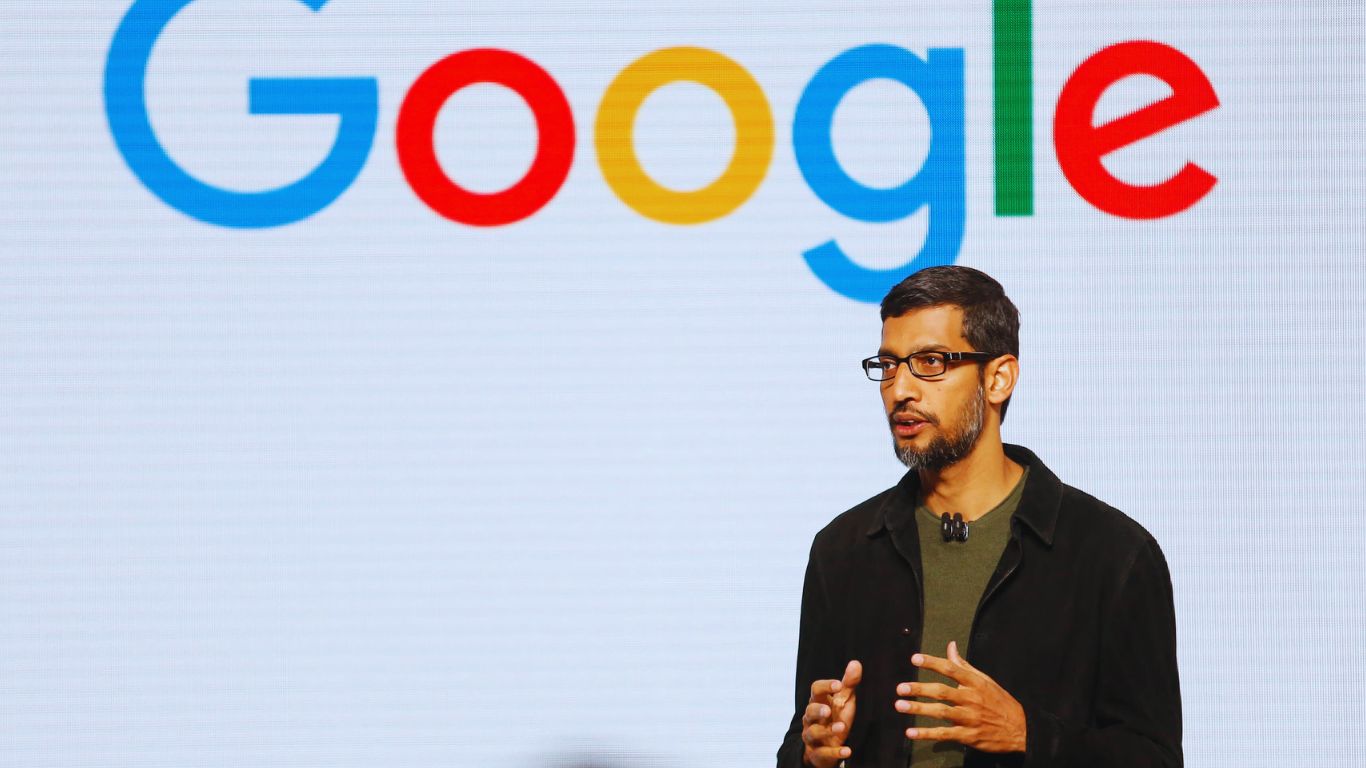Google’s recent launch of its groundbreaking Willow quantum chip has not only stunned the tech world but also sparked a fascinating conversation between two of the industry’s leading figures—Google CEO Sundar Pichai and Tesla and SpaceX CEO Elon Musk.
The discussion, which unfolded on X (formerly Twitter), showcased admiration for technological advancements while hinting at ambitious, futuristic collaborations.

The Willow Quantum Chip: A Game-Changer
Google unveiled its latest Willow quantum chip, which promises unprecedented error reduction and the ability to solve complex problems in a matter of minutes. This development is seen as a quantum leap in computing, capable of handling computations that would take even the world’s most powerful supercomputers trillions of years to complete.
Reacting to Pichai’s announcement of Willow’s capabilities, Elon Musk responded with a simple yet telling word:
“Wow.”
A Cosmic Collaboration: Quantum Cluster in Space?
Sundar Pichai took the conversation further, proposing an exciting vision:
“We should do a quantum cluster in space with Starship one day.”
Pichai’s mention of Starship, SpaceX’s next-generation spacecraft, brought a futuristic angle to the dialogue. The idea of combining Google’s quantum computing expertise with SpaceX’s space technology hints at a groundbreaking partnership.
Elon Musk seemed intrigued by the possibility and replied:
“That will probably happen.”
This brief yet powerful exchange stirred excitement about the future of quantum computing beyond Earth, potentially leveraging space as the ultimate environment for large-scale quantum systems.
The Kardashev Scale: Measuring Humanity’s Progress
The conversation took a thought-provoking turn when the duo delved into the Kardashev scale, a measure of a civilization’s technological advancement based on energy consumption.
Musk commented:
“Any self-respecting civilisation should at least reach Kardashev Type II. In my opinion, we are currently only at.”
The Kardashev scale ranges from:
- Type I: Harnesses energy from a planet.
- Type II: Utilizes energy from a star.
- Type III: Taps into galactic energy sources.
Pichai agreed with Musk, stressing the need for more solar energy as a practical and scalable solution to global energy challenges:
“We should scale solar so much more. Amazing that we keep looking at alternatives when the most obvious path is staring at our eyes, literally!”
Viral Reaction and Market Impact
The candid and visionary discussion quickly went viral, attracting widespread attention on social media. Fans and tech enthusiasts alike celebrated the rare exchange, with comments ranging from awe at the possibilities of quantum computing to discussions about its potential implications for human progress and global challenges.
Google’s parent company, Alphabet, also saw a positive market response, with its share price rising by nearly 5% after the announcement of Willow. This marked the company’s best trading day since April and added to its impressive growth in 2024, where shares have surged 25% year-to-date.
What’s Next for Willow and the Future of Quantum Computing?
While Willow has pushed the boundaries of quantum computing, the collaboration hinted at between Pichai and Musk brings a whole new level of possibilities:
- Quantum Computing in Space: Combining Google’s advancements with Starship’s technology could enable more efficient quantum clusters in low-gravity environments.
- Global Energy Solutions: A stronger push toward solar energy could address humanity’s energy needs and contribute to a cleaner, sustainable future.
- Technological Evolution: Moving closer to the Kardashev Type II benchmark would redefine humanity’s place in the universe.
The dialogue between Sundar Pichai and Elon Musk highlights the convergence of quantum computing, space exploration, and sustainable energy solutions. As the Willow chip sets new milestones in computing, discussions like these inspire both technological progress and philosophical reflections on humanity’s future.
With tech leaders driving innovation and collaboration, the next era of computing and exploration looks more exciting than ever.















